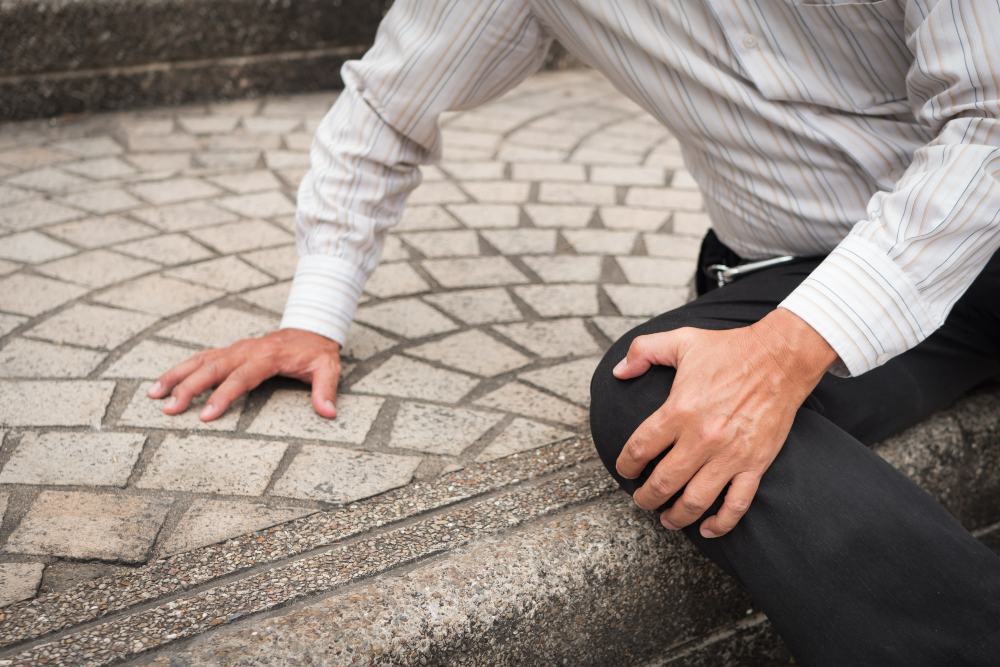
How to Determine Fault in a Slip-and-Fall Accident
Slip and fall cases are one of the most common types of personal injury matters in Florida. It’s a fact of life: at some point, you might take a spill. Sometimes a slip and fall results in a mild to a severe injury that may have occurred due to another party’s negligence.
If you have sustained an injury due to a slip and fall and have questions about potentially seeking out compensation, damages, or litigation, contact an experienced personal injury attorney as soon as you can. While this area of the law is complex, we provide a general overview of the law surrounding slip and fall cases, including the complexities of determining fault.
What Do I Have to Prove in a Slip and Fall Case?
In Florida, slip and fall cases are called “premises liability” cases. While the name is simple and relatively self-explanatory, the elements that you have to prove are complex. Premises liability cases are “negligence” cases.
For any negligence case, there are four elements that a plaintiff must prove for a successful result. Those elements are duty, breach, causation, and damages.
In layman’s terms, you must first prove that the owner or property manager owed a duty of care to the people coming onto the property. Basically, it was their duty to maintain the area free of hazards. The second element, breach, requires that you prove the owner, in fact, breached that owed duty. The third, causation, requires that you actually show that the breach of duty caused some sort of injury. Finally (tied into the previous element), you must prove damages, meaning you must show that some injury was sustained due to the conduct.
These elements are the benchmarks of all negligence matters. However, premises liability is even more complicated. You also have to prove elements such as “notice” on the part of the owner or manager. Further, you will have to fight other parties on the issue of “fault.”
Complexities of Determining Fault in a Slip and Fall Case
It’s easy to think that you can simply argue that you fell because the owner failed to protect you from a dangerous condition. However, as your attorney will attest, determining fault is no simple matter.
While the owner generally must maintain a safe environment, you also must exercise care in your movement. You are also responsible, to a certain degree, for your actions. Your conduct will come into play and can affect your case. In Florida, there is a doctrine known as “comparative negligence.” A court will determine the percentage of fault for each party.
For example, if you were trespassing in an area of the grocery store you are not supposed to be in and you slipped on some spilled liquid, the courts will likely attribute a portion of the fault to you. You will be partially negligent for your conduct. This can reduce what you can recover from the owner/manager, or it can even bar your claim completely.
The courts will examine a myriad of facts and issues. They would look at if there were warning signs for the hazard that you may have ignored. They will look at whether you were invited onto the property or if you were trespassing (e.g., there are legal terms that classify you as an invitee, licensee, or trespasser). Notably, even trespassers are accorded some degree of protection from the law. The courts will look at the documentary evidence, like videotapes and reports, and testimony, to determine what happened and its fault. These issues are merely a drop in the bucket in determining fault.
Don’t Wait to Contact an Experienced Florida Personal Injury Attorney
An experienced premises liability attorney can help you navigate the complexities of proving these elements and helping you prove fault on the part of other parties. Florida attorneys like Fighter Law are experienced, compassionate, and aggressive in fighting for your rights and compensation. Don’t wait to have your case reviewed. Contact us at (407) 344-4837 or by completing the online contact form.
Share:
free case evaluation
Fill out the form below for an free evaluation of your case.
Categories
- Birth Injury
- Boating Accidents
- Car Accidents
- Civil Rights
- Criminal Defense
- Cyberstalking
- Divorce
- Dog Bite Injury
- Domestic Abuse Charges
- Domestic Violence
- Drug Charges
- DUI Charges
- Family Law
- Felonies
- Fighter Law Firm
- Firearms
- Firm News
- Guardianship
- Injunction Removal
- Injunctions
- Marketing
- Personal Injury
- Repeat Violence Injunction
- Restraining Order
- Seal and Expunge
- Sex Crimes
- Slip and Fall
- Stalking Injunction
- Theft and Robbery
- Theme Park Trespasses
- Traffic tickets
- Uncategorized

